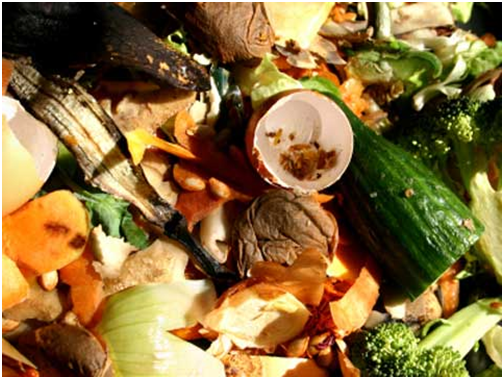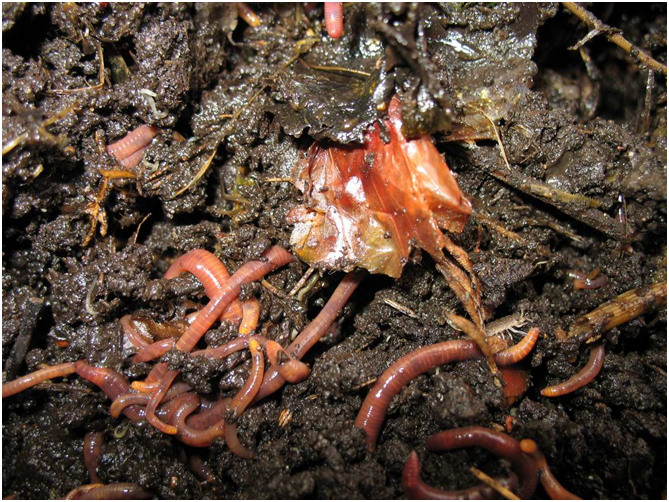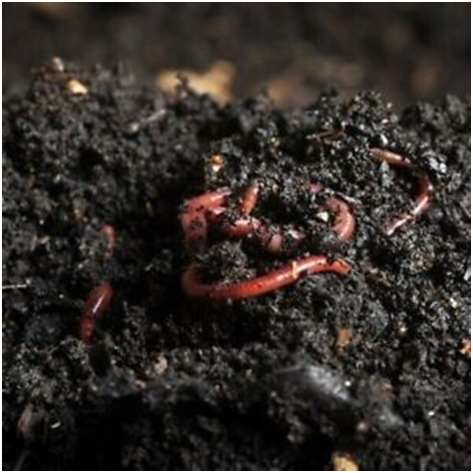My journey of Wormy Composting
I'm Andrea A. Fernandes a Student from S.S Dempo College of Commerce and Economics. This blog is a part of our curriculum assessment that involves practicality, it also plays a key role as a CSR activity.
The objective here is to learn as my compost matures from day 1 to day 30
WHAT IS COMPOST?
A mixture of organic matter that has decayed or been eaten by organisms is used to improve soil structure. Composting is the process of recycling organic materials into a rich soil. Anything that used to be alive will break down. Composting in the backyard is the same process nature uses. The cycle of life can continue if you compost your organic waste. The compost smells like a forest floor. The decaying material of plants. Adding dirt improves the growth of new plants.
RESIDENTIAL COMPOSTING
Composting is a way of recycling. Composting is the controlled decomposition of organic material such as leaves, twigs, grass clippings, and vegetable food waste. Compost is a valuable soil product. Composting helps to keep the high volume of organic material out of our landfills and turns that material into a useful product. Composting reduces the cost of hauling garbage and operating landfills because organics make up a significant part of municipal waste. Compost is great for gardens and landscaping, and you can save money by buying less soil conditioner, mulch, and fertilizer.
Composting is a great idea, no matter how you define it. Did you know that the International Union of Soil Sciences declared world soil day in 2002? The foundation of our food system is soil, but fields that used to be rich in it are dying out. It is unbelievable how much food we waste at home. Forty percent of the food grown in the India is thrown away, while a lot of people suffer with hunger. Composting can connect the dots between food waste and soil depletion. The simplest change you can make at home is to put peels, leftovers, and expired foods in a different can. The starter ends up going back to the soil. "If we don't eat dinner tonight, what we don't eat tomorrow can become dinner down the road." It is what nature intended.
WHY DO WE NEED COMPOSTING?
Compost is the first "soil-ution" to almost any problem that pops up in the garden. These are the BENEFITS of composting:
- Compost improves the structure of the soil by adding important nutrients, balancing PH levels, and allowing for better hydration.
- Compost has beneficial microbes that help aerate and fertilize the soil. The little worms/micro organisms help to break down and increase the surface area of plant roots in order for plants to be able to get the vital vitamins and minerals they need.
- Compost helps purify and replenish local water sources. Adding compost to the soil will increase the amount of water that is able to penetrate into the soil. This is great as the water can go all the way down to the impervious rock layer where it replenishes local springs, ponds, and lakes.
- Compost controls ecology. Compost has water retention abilities. Excess water causes most erosion. It's is unable to penetrate into the ground, water swells up on the surface and rushes down to lower elevations, taking the top soil with it and diminishing the land in the process. Compost acts like a sponge and allows more water to enter the ground
- Reduces green house gases. Most food and yard waste is thrown away. Without the proper environment to be composted, they rot, releasing methane and carbon dioxide in the process. Composted waste can be diverted from the landfills and back into the soil to decrease methane and carbon outputs.
- Composting reduces disposal cost, reduces landfills.
THE PROCESS FOLLOWED TO MAKE MY COMPOST
- Segregation of waste: Into cooked, slaughter house waste and uncooked waste (I only used food waste which was uncooked to make compost ie: Collected the vegetables peels, egg shells, fruit waste, dried leaves.
- Composting Pots: I used the once made of clay, which are to be stacked one on top of the other, the number of pots is 3. Before starting the composting process the two pots (pot A and pot B) on top have to be lined with cardboard so that the compost doesn't fall in the final dish.
- Placing of pots: they have to be kept in a dray area, away from pets, preferably in a corner so that they do not tumble and fall.
- Adding the waste to the pots: On day 1, I put the waste into the pot A and continued the process for about a week and saw the waste change its colour to black, shrink in quantity, it had a massive number of tiny insects that probably attacked it.
- Mix it: every time I would take the lid off to add new waste, I would give the existing one a good mix. Add the new waste mix it and close the lid.
- 2 weeks progress: I saw worms crawling in the waste, probably breaking down the waste into compost. I would add some garden soil or drizzle some water if the waste got too dry or wet.
- After 15 days: I moved pot A down in place of pot B and placed pot B on top and repeated the entire process over again.
- A month late (25 May): my compost is ready, it has a earthy fragrance with a moist texture, with worms twirling around, black in colour and ready to go around the roots of my beautiful rose plants and avocado, mango, chikoo trees. The water collect in the lowest pot was diluted with water and put into the roots of my coconut trees.
- Today: is the end of the project but not the end of my composting journey.







Comments
Post a Comment